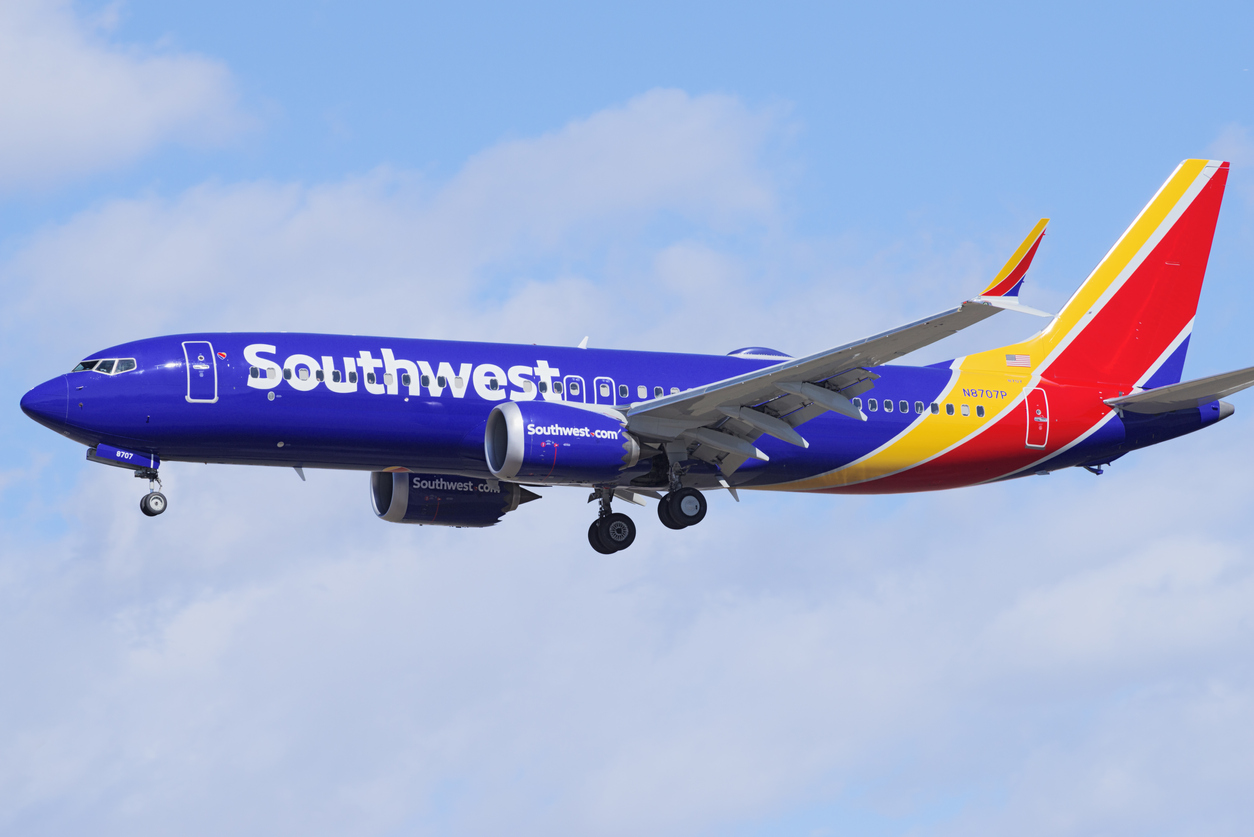
A passenger aboard a Southwest Airlines flight headed for Dallas, Texas, tragically died from blunt-force trauma on Tuesday, after a mid-air engine explosion sucked the passenger into the window and forced the aircraft to make an emergency landing in Philadelphia, Pennsylvania.
Engine Burst into Flames Over Suburban Philadelphia
Southwest Airlines Flight 1380 was carrying 144 passengers and 5 crewmembers when it took off yesterday morning from New York’s LaGuardia Airport.
The aircraft’s left engine suddenly burst into flames just 20 minutes into the flight and roughly 32,000 feet above suburban Philadelphia.
“The plane dropped immediately,” passenger Matt Tranchin later told NBC 10 in Philadelphia. “Plane smelled like smoke. Ash was all around us.”
The 2-engine Boeing 737-700 was diverted to the Philadelphia International Airport, where it made an emergency landing at approximately 11:20 a.m.
43-Year Old Passenger Pronounced Dead After Being Partially Sucked Out Window
Passenger Jennifer Riordan, a 43-year-old Wells Fargo executive and mother of two from Albuquerque, New Mexico, was partially sucked out of the aircraft when a piece of shrapnel blew a hole in the plane.
Though her fellow passengers were able to pull her back, Riordan was gravely injured.
“They were doing CPR on her and using the defibrillator while we were landing,” passenger Max Kraidelman told The New York Times. “They were working on her while everyone else had their oxygen mask on.”
Sadly, those efforts were not enough to save Riordan, who was pronounced dead at a Philadelphia hospital shortly after the plane made its emergency landing.
Seven other passengers were treated on the tarmac for minor injuries.
There are also reports that one passenger may have suffered a heart attack.
Investigation into Southwest Flight 1380 Focused on Metal Fatigue
According to the National Transportation Safety Board (NTSB), a preliminary investigation suggests that “metal fatigue” may have led to the tragedy aboard Southwest Flight 1380.
NTSB personnel arriving on scene yesterday noticed immediately that one of the left engine’s 24 fan blades was missing.
“This fan blade was broken right at the hub, and our preliminary examination of this was there is evidence of metal fatigue where the blade separated,” NTSB Chairman Robert Sumwalt said.
“Remarkable” Similarities to Earlier Incident Involving Southwest Airlines
A report from the Associated Press noted that Tuesday’s tragic accident was “remarkably similar” to an earlier instance of engine failure that occurred aboard another Southwest flight just two years ago.
The previous event led the engine manufacturer and regulators to push for ultrasonic inspections of fan blades on engines like the one that blew apart over Pennsylvania.
Southwest Airlines announced yesterday that it would be inspecting similar engines within its fleet over the next 30 days as a precaution.
Contact Our Undefeated Airplane Accident Lawyers for a Free Consultation at 1-888-603-3636 or CLICK HERE
Our Undefeated Airplane Accident Lawyers are investigating the tragedy aboard Southwest Airlines Flight 1380 and will post updates as more information becomes available.
Having won $1 billion for our clients, including record-setting verdicts and settlements for hundreds of people injured or tragically killed in connection with some of the largest accidents in history, our firm has the reputation, experience and resources to stand up against the largest companies in the world and ensure that our clients and their families are fully compensated for all their injuries and losses.
If you or someone you love was injured while travelling on Southwest Flight 1380, and you have questions about your legal rights and options, Click Here to send us a confidential email via our “Contact Us” form or call 1-888-603-3636.
All consultations are free and, because we only represent clients on a contingency-fee basis, you’ll pay nothing unless we win your case.